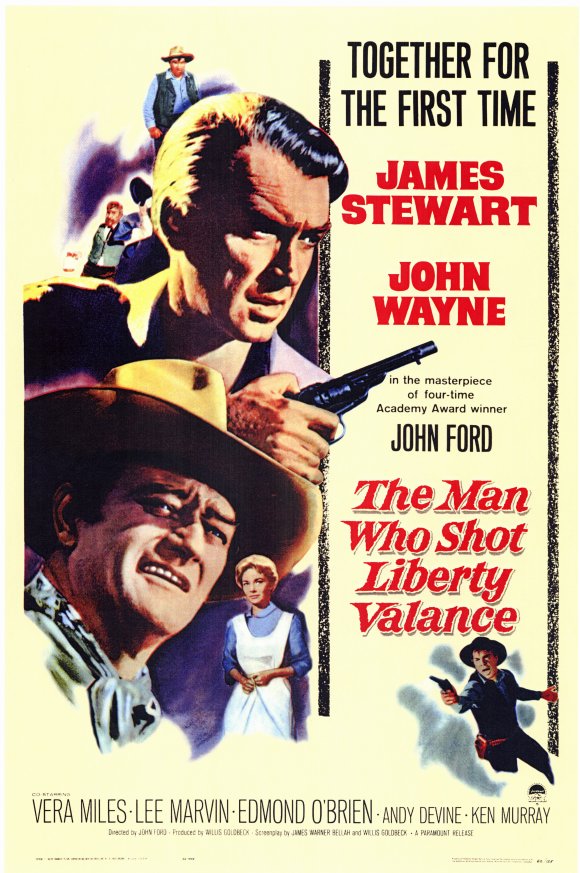
This is one of the saddest films ever made, but the depths of its sorrow don't reveal themselves on a first viewing, when we have the tension and suspense of the narrative to distract us. But it's a tale told in retrospect, beginning with the death of one of its protagonists, and it's best appreciated, or most fully appreciated, on a second or third viewing, when you know what's going to happen — when you can relish all the small details layered into it to reinforce its melancholy, elegiac mood.
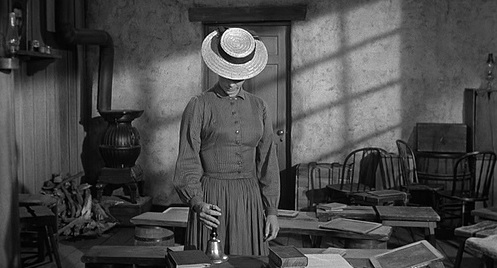
In 1962, when the film was made, the twilight Western was becoming a regular form of the genre, telling stories about the passing of the Old West and its heroes and their values. It signaled a suspicion that the Western itself was almost played out as a commercial form, and an acknowledgment that the great stars of the genre were aging and not being replaced by younger stars of equal stature.
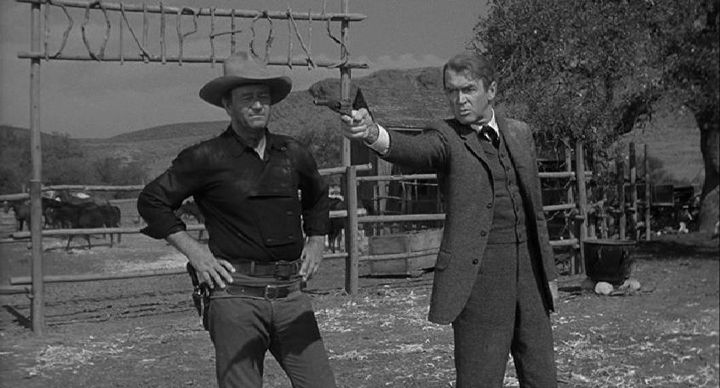
Ford was the only director who had the grace to try and give the Western a proper burial, and The Man Who Shot Liberty Valance is that burial. Sam Peckinpah, who made one of the great twilight Westerns in Ride the High Country, was driven by his demons to mutilate the corpse of the Western (in The Wild Bunch) before throwing the sod o'er it.
As with The Searchers, The Man Who Shot Liberty Valance has at its tragic core the story of a love that might have been but never was, regret for which consumes the female lead here, as it consumed the male lead in The Searchers. This is what gives the film its emotional power, in a way that a tale of the civilizing of the West, the passing of an old way of life, would not have. What might have been an exercise in nostalgia or sociology becomes something much deeper.
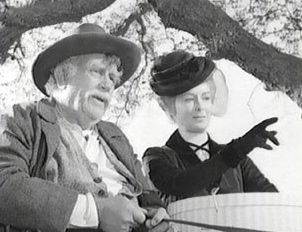
Hallie, played by Vera Miles, is the key to almost every scene in The Man Who Shot Liberty Valance. As a general rule, if you want to know what Ford is interested at any given moment, watch her. Watch especially the early scene in which Link, the old retired sheriff, played by Andy Devine, drives her out to the desert. His delicacy in knowing what she wants to see but not speaking of it, her reliance on his unspoken understanding and sympathy, evoke something far more momentous than the passing of old times.
What we are seeing is the wisdom of age, a celebration of consideration, of the potent, consoling force of etiquette in human affairs. It's the passing of chivalry, gallantry, self-sacrifice which the movie grieves over — not the rowdy freedom of the old days, but their silent and graceful formalities of mutual respect.
The idea is even more poignant now than in would have been in 1962, when it was genuinely prophetic. There isn't a director working in Hollywood today who's wise or grown up enough to create a scene like that one between Link and Hallie, and even if there were, there isn't a producer or a studio with the guts to let a director create such a scene. Ford was mourning more than the death of the Western in The Man Who Shot Liberty Valance — he was mourning the death of humane cinema.
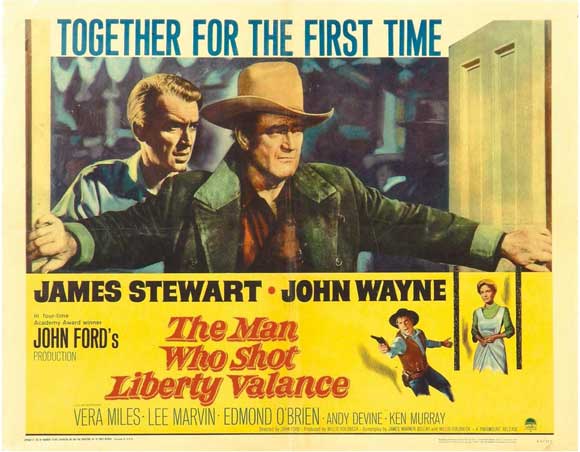
Ransom Stoddard, played in the film by Jimmy Stewart, embodies the logic of the law, right and true and admirable in every respect, but Tom Donophon, played by John Wayne, embodies the spirit of grace. It's a spirit Hallie has come to cherish too late, but she pays due respect to it as it's laid to rest.
Stoddard once taught her how to read, but Donophon gave her a flowering plant, bearing cactus roses. She never repaid the gracious gift in his lifetime, but she knows, with his death, what she owes him, has always owed him, and repays it symbolically, the only way she can.
The director Paul Schrader once said that Sam Peckinpah's contribution to the Western was carving its tombstone. John Ford, by contrast, had the decency and the humility to lay a cactus rose on its grave.

Ford is my favorite director, TMWSLV is my favorite of his films and my second favorite film of all time. In a few, succinct paragraphs, you've touched on why it is such a haunting, deeply felt experience for me to watch and examine this work of art. No movie ever made me feel so sad, such a sense of loss…loss for something I never even experienced in real life. Which makes it sadder still…
Beautiful writing. I often come back and read your posts on Ford. Keep it up.
Thanks so much for your note — the encouragement is much appreciated!
An excellent review of one of Ford’s finest films; it is indeed an elegy by a director nostalgic for what is passing away and will be mourned.
Thank you, Carter.
Pingback: Linkage | Uncouth Reflections